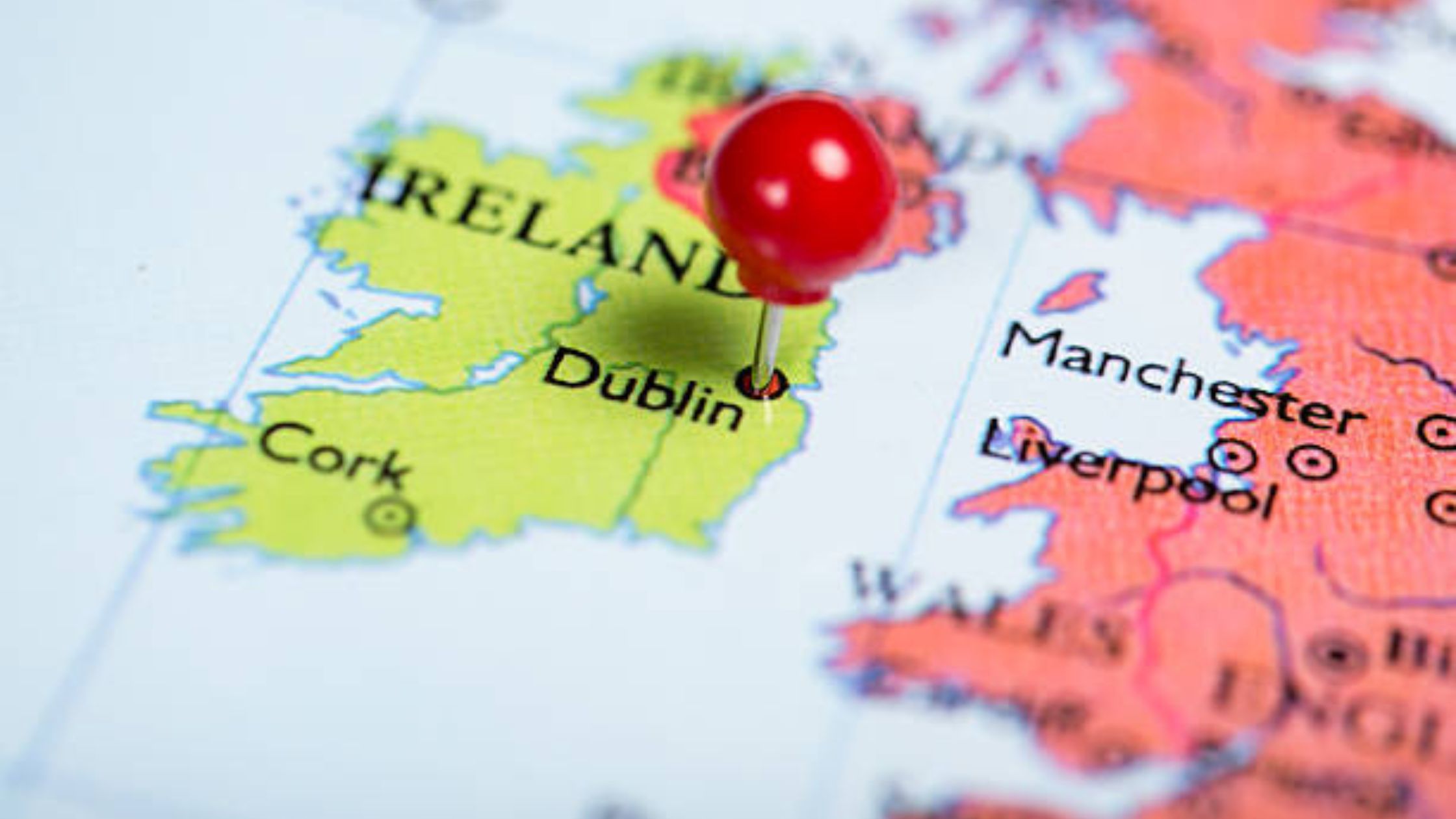Living In South Korea: Pros & Cons You Should Know
South Korea is far more than K-pop and K-dramas. It is a country known for outstanding food, from bustling street markets to high-end dining, as well...

4 min read
If you want to get permanent residency in Ireland, then the first step is to get an Irish Residence Permit and get it stamped with one of the stamps that is a pathway to permanent residency in Ireland. For example, the employment stamp or stamp #4. You have many opportunities to enter Ireland, but not all allow you citizenship or permanent residency. Only certain types of stamps count towards long-term residency in Ireland, so if that is your goal, it is crucial you apply for the right stamp.
Anyone who intends to spend more than three months in Ireland must apply for an Irish Residence Permit (IRP). Only individuals who are sixteen years of age or older and not a member of the EU may apply. The procedure to register is to go to the registration office in person and apply. A cost of €300 ($320 USD) is associated with registering or renewing your Irish Residence Permit (IRP). Everyone who applies for an Irish Residence Permit must also get stamped to indicate their purpose in Ireland. There are a number of different stamps.
If you plan to stay and work in Ireland and you are not from the EU, then you will need an employment permit. You may also have to apply for a long-stay visa if you are not from a visa-exempt country. Depending on your skill set and the type of work you want to do, your employer will have to apply for a working permit, a critical skills work permit, an internship employment permit, or one of the other myriad employment permits granted by the Irish government.
Prior to getting this stamp, your employer must apply for an employment permit on your behalf. Alternatively, you can get a letter from the Immigration Service Delivery (ISD) that states you are allowed to work without a permit. This stamp is a pathway to permanent residency.
This is for people who are studying to become accountants and/or going to be employed as a trainee accountant.
This stamp is for people who are studying in Ireland. It does not give permission to work or run a business, only to pursue your studies.
This stamp allows you to live in Ireland but not to work unless you apply for a work permit. This is a pathway to permanent residency. You might apply for this stamp if you intend only to do charitable activities or if you are joining a spouse who is on a work permit.
This stamp allows you to live in Ireland, start a business, and work without an employment permit. Only certain people are eligible, for example:
If you are the spouse or civil partner of an Irish citizen
Certain types of refugees may qualify
If you are joining a family member who has been granted refugee status in Ireland
If you are the parent of an Irish citizen
If you intend to reside in Ireland on a long-term basis
If you are participating in the Investor and Entrepreneur Programme
This stamp is a pathway to permanent residence.
Related content: The Basics Of How To Get A Second Passport Or A Second Residency

Map of Ireland
It is also possible to establish Irish residency through investment. To qualify, an investor must make a €1 million ($1.06 million USD) investment into a private equity fund, a €2 million ($2.12 million USD) investment into a real estate investment trust, or a €500,000 ($530,935 USD) charitable donation to a qualified organization or project. Participating in this program will grant residency for an initial two years, which can be extended by three years. There are no residency requirements to participate in this program, but if you want to use it as a pathway to citizenship, then the residency requirements we discuss later in the section on applying for citizenship are applicable here as well.
One can qualify for permanent residency in Ireland after showing proof of working there for five years. Only time spent in Ireland counts towards this total, so any time you leave the country, it pauses the clock. Here are the requirements to apply for permanent residency:
Five years time actually spent in Ireland
Documentation showing evidence you had the proper employment permit
Your stay in Ireland was based on a stamp that allows for permanent residency
Proof of a clean criminal record check
Not on welfare
Self-employed individuals do not qualify
In order to apply, the following form must be filled out and mailed to the Department of Justice, along with all required documentation. If you are approved, there is a €500 ($531 USD) processing fee.
Applicants who obtain permanent residency status in Ireland have many tremendous benefits. You gain visa-free travel throughout the common travel area, including England, Scotland, Wales, the Isle of Man, Northern Ireland, and the Channel Islands, but not the Schengen Area. Another big advantage is access for you and your family to the top-notch educational system in place in Ireland. Ireland ranks quite high when it comes to the quality of its schools. Irish medical care is also top-notch.
The Irish economy is quite strong and ranks third in economic freedom globally by the Heritage Institute's 2022 ranking. The climate of Ireland is quite mild, and while it certainly has a winter, including snowfalls, the average winter temperature is 5 to 8 degrees centigrade. It does rain at a high frequency, so make sure to pack an umbrella.
Related content - How To Get Your Residency in Cyprus

Cliffs of Moher, Ireland
Ireland has a worldwide tax system, so if you are deemed a tax resident who lives there for more than half the year, you will owe tax to Ireland based on any income you have worldwide. Taxes in Ireland are fairly high, with a 40% top rate for income and a 23% VAT. Certain items like oral medicine, milk, and bread are exempt from the VAT. Corporate taxes in Ireland are only 12.5% which has caused some to label Ireland a corporate tax haven.
In order to apply for Irish Citizenship by naturalization, you must have spent five years actually in Ireland under an appropriate residency permit stamp, you must have spent the last 365 days actually in Ireland, you must be of good character, and you must attend a citizenship program.
In order to apply for Irish citizenship, you will need to supply documents to prove you have fulfilled all requirements, fill out an application form, and make certified copies of your birth certificate and passport. There is a fee of €175 ($186 USD), and applications can take as much as twelve months to process.
When thinking about whether or not you want to live and work in Ireland, or just live there, then you must make sure you have applied for the correct visa. If you have chosen the incorrect visa and want to make it permanent after three years, they may insist you start the process all over again due to your errors. So make sure you fully understand the criteria.
If you want the best intel from the expat world, including profitable offshore opportunities, little-known tax-saving strategies, and hard-won insights on immigration, passports, and Plan-B residencies, all delivered to your inbox every single week, then join our daily correspondence, EMS Pulse®. Currently enjoyed by over 84,000 expats and expat-hopefuls worldwide. Fill in the form below to join our newsletter free:

Written by Mikkel Thorup
Mikkel Thorup is the world’s most sought-after expat consultant. He focuses on helping high-net-worth private clients to legally mitigate tax liabilities, obtain a second residency and citizenship, and assemble a portfolio of foreign investments including international real estate, timber plantations, agricultural land and other hard-money tangible assets. Mikkel is the Founder and CEO at Expat Money®, a private consulting firm started in 2017. He hosts the popular weekly podcast, the Expat Money Show, and wrote the definitive #1-Best Selling book Expat Secrets - How To Pay Zero Taxes, Live Overseas And Make Giant Piles Of Money, and his second book: Expats Guide On Moving To Mexico.

South Korea is far more than K-pop and K-dramas. It is a country known for outstanding food, from bustling street markets to high-end dining, as well...

Asia is one of the most fascinating regions in the world for travel, offering an extraordinary mix of cultures, histories, and landscapes. From...

The presidential elections held in Costa Rica on February 1, 2026, provided another example of the electoral consolidation of right-wing politics in...